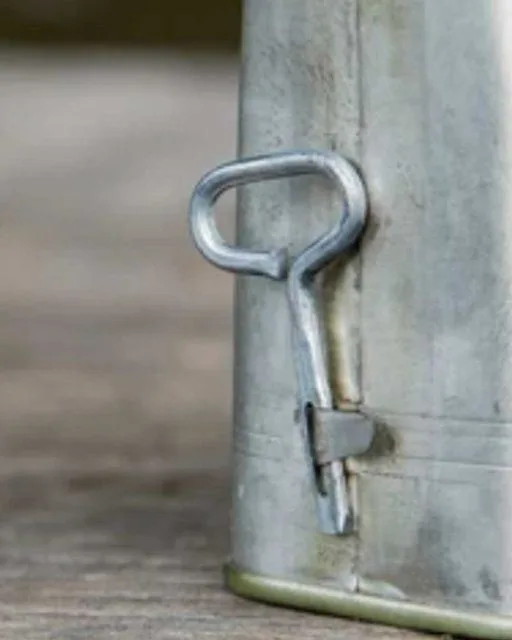In today’s fast-paced culinary world, brimming with high-tech gadgets, we often overlook the simple beginnings of kitchen tools. Consider the evolution of opening a canned good: what’s now a simple button push was once a skilled task, achieved with the ingenious can opener key. Let’s journey back in time to appreciate the origins, rise, and gradual fading of this once-essential kitchen device.
As canned food gained popularity in the late 19th century, so did the necessity for an easy way to access these metallic containers. The can opener key, though quite different from today’s electric openers, was a pivotal invention, transforming how we approached canned goods. Before its introduction, opening cans was a risky and labor-intensive process, often involving sharp knives, chisels, and hammers, leading to potential injuries and food wastage.Using a can opener key required skill and patience, contrasting sharply with the effortless operation of modern electric openers. It consisted of a sharp blade and a rotating handle. Users would insert the blade into the can’s lid and turn the handle to gradually puncture and slice through the metal. This method, safer and more efficient than previous ones, made canned food more accessible and popular, even in remote areas.
For many, the can opener key evokes nostalgia, reminiscent of a slower-paced era. It symbolizes a time of simplicity and anticipation in opening a can, and it speaks to a period of resourcefulness and self-sufficiency, contrasting with today’s disposable culture.
However, the can opener key began to decline in the mid-20th century with the emergence of more advanced opening technologies. Electric and handheld rotary can openers offered quicker, easier ways to open cans, leading to the can opener key’s gradual exit from the culinary scene.
Though it may no longer be a fixture in modern kitchens, the can opener key remains a cherished symbol of the past for collectors and enthusiasts. It represents the ingenuity of our ancestors and their efforts to make canned food accessible to everyone.
